One of the biggest benefits for our Aviation Marketing Master Class is the opportunity to network with aviation professionals. Our Facebook Group Facilitator, Bert Botta, is interviewing one member a week to help us get to know one another better, make better referrals to each other, and generally learn more about the smartest people in the industry.
Want to be featured?
- Become a member of the Master Class!
- Contact Bert Botta and get on his interview schedule!
We’re looking forward to learning more about smart aviation professionals!
Interview with Doug Goldstrom, Special Services Corporation
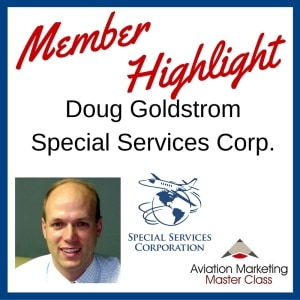
Bert Botta: Hi, this is Bert Botta, ABCI Facebook facilitator and it’s Tuesday, March 15th, 2016. This is an ABCI interview with Doug Goldstrom of Special Services Corporation, in Greenville, South Carolina.
Bert: Hi Doug. I’m looking forward to our time together and I’m glad we connected so we’ll jump right into the interview.
As with all our clients I have a series of 5 questions that I’ll be asking you. I’ll start off with the first one that will help people get to know you. Then we’ll work our way through the other four.
The first question is:
How did you get where you are in your professional life?
Doug: Well, probably like everybody else, by working hard. I didn’t start my career in aviation. I started in banking. When I graduated from school, I was actually working for a retailer at the time. My first job was with Polo, a Ralph Lauren company.
I worked for them for a couple of years in the retail market. In fact, my boss at Polo at the time is now the CEO of Peter Millar Clothing. About ten years ago, I had the opportunity to join Special Services Corporation in a finance position as a controller, and that gave me a huge background in the operations of aviation and maintenance.
Being a smaller company a lot of employees here wear many hats, and one of my hats was working parts sales. There were some openings and a few years later I filled that sales position. Then that morphed into my being able to get out of the financial side of the business and getting into full time sales.
Like I said, I’ve been with the company for ten years now, and the past four to five years have been exclusively in sales.
Bert: That’s in aviation sales?
Doug: Yes
Bert: Mainly aircraft sales?
Doug: Mainly management and charter. We do buy and sell aircraft.
But that’s not necessarily a business that we emphasize. We typically work with clients that come to us on an individual basis, or one of our current clients is looking to move up to a different aircraft. Then we work with them hand in hand.
Bert: Good. That leads into the next question.
How would I spot your ideal customer for you or your company?
Doug: Well, I think first off, being an aviation company, obviously someone who’s passionate about aviation.
If we look at our current client base, some of our best clients are clients that have a passion for aviation. Someone that owns an aircraft already, or the best one is someone who has a need to travel. They may not have utilized private aviation in the past, but they need to travel.
And then we take a look at that need, and how that relates to their value of money and to their time. Because in private aviation the purpose you fly is to save time. Time is of the essence, and you want to get there and get back in the least amount of time.
So, that’s the kind of ideal client we’re looking for, someone who’s passionate about aviation. Like I said, some of our best clients have that passion for aviation. They love it. They’re a thrill to work with because of the fact that they have that passion.
It’s nice because you know that everything you do for them, if you do it right, they love it.
We help expedite their time, whether it’s when they’re out here on the field taking their airplane flying or we’re flying them.
That’s who we’re looking for, someone who owns an aircraft, someone who’s passionate about aviation, and/or has a need to travel.
And then the fourth one to be time, value, and money.
Bert: So are you looking to them to manage that aircraft?
Doug: Yes, we’re looking to manage that aircraft. If they have an aircraft already, we’re looking to do a couple things.
We’d like to do a couple of things; we’d love to manage it and if they’re okay with their operation now, we’d like to perform the maintenance on it, because we can do the outside maintenance as well on the aircraft.
And then of course the third part would be, if it makes sense we’d love to put that aircraft on charter, if it’s a charterable airplane. We’re talking a King Air or a Jet.
We manage single engine aircraft and have some Cirrus on our charter certificate. If an airplane is a King Air or a jet, we can help our client make money when they’re not using it by putting it to work in our charter fleet.
That’s really the ideal customer, to answer your question. So it’s multi-faceted, but the biggest part would be the fact that they have a need to travel.
And I talk to many clients that say, “Hey, I travel a lot and always get stuck at the airports, or have to drive.”
So there’s an airplane to fit that need in our fleet. You’ve got a single engine Cirrus for short hops. You’ve got seven passenger jets to accommodate the group of people that need to travel between locations. So the biggest opportunity, what I hear when I talk to potential clients, or talking to people just in general, is “Hey, I travel.”
I’ve got a solution for you then when you travel.
Bert: You guys do international as well as domestic?
Doug: We typically broker that out, but yes, we do international, Canada and Mexico. In fact we were just down in Mexico a couple of weeks ago.
How would I best describe your or your company’s unique benefits, approach, products and services, and value proposition?
Doug: Our first unique benefit is our associates. Our employees make the biggest difference.
We have worked hard to hire and acquire talented, well-qualified, customer-focused associates. When I say customer-focused, what does that mean? Well, they evaluate how best to serve the needs of our clients. If it’s in maintenance, if it’s in charter, if it’s in management they take a look at the client’s needs and they address them.
The importance of being warm and personable is another, and in fact we get a lot of compliments on our associates even down to we’ve got a managed client that flies in and comments, “Wow I can’t believe that your maintenance personnel were out there unloading our luggage out of our car! I can’t believe how helpful and personable they were.”
We always take the time to talk to the client. Including our maintenance people. Our associates have well- rounded backgrounds; when you talk to maintenance personnel, a lot of them have been in big service centers and small service centers.
Our pilots and management have worked in corporate flight departments as well as charter organizations. In fact, one of our pilots who has actually owned a charter company. Some of our pilots have flown for the airlines. We have a wide variety of background and experiences with our talented pool of associates.
When a potential customer comes to us with a need, there’s probably an employee within our organization that has dealt with that specific need. And that makes the perfect consultant for them, because they’ve been there. It’s like, “Okay, yes, I can relate to you. I’ve worked with another charter company.”
I’ve had many customers come up to me and say, “I’ve flown with the big operators; can you provide services for me and make it as easy as it was for that when I had the card with them?
Bert:Expand on that, if you would, Doug. What is your value proposition, your USP, unique sales proposition?
Doug: We’re nimble, meaning we’re not a huge company. We can custom create solutions for our client, based upon the fact that we’re small. There’s not a cookie cutter plan for every client that walks in the door.
We’re going to custom tailor a plan that works for you for maintenance, for charter, for management. To give you an example: we’ve got a client who didn’t want to leave his airplane positioned in Greenville anymore, so we were able to accommodate him by moving his aircraft to another location that was more convenient for him to utilize.
Although we didn’t have a separate office or in that location. It’s our people that make the difference, again, meaning you’ve got just a handful of people you deal with. You build that relationship, you feel confident with that particular person, and that is your go-to person that you talk to all the time.
And when it comes to pilots, it goes back to the quality of people you hire. Our competition, their philosophy sometimes is, you just find someone that meets the minimum qualficiations and put him in a pilot seat.
Our employee retention is seven plus years. So when a charter client boards an airplane, they’re typically already familiar with that pilot.
That’s important to them because they feel a lot more confident and safe.
Bert: I wish I knew about you guys when I was flying for NetJets! The disconnect was the premise that Netjets hired customer service oriented pilots first.
And that was not often the case, because they basically wanted to fill the seats with a qualified pilot. And some of the guys were not great at customer relations. So yes, that’s really, really important.
Doug: So, our value proposition is our people.
When you have pilots that your client requests and loves to see again and again, that’s a big plus. And we’re able to accommodate those requests, again and again. That builds that rapport with the client, and the client really likes that.
But that’s part of the benefit of working with us, a smaller, more nimble operation.
It’s the fact that you get to know us on a personal basis which means you’re going to be better taken care of.
With that personal touch, you feel confident you’re going to be taken care of. You’ve got one person to talk to.
As a customer, it’s a plus to get used to that pilot. That pilot knows, “Hey, when this customer get on the airplane, he likes this reading material, he likes these beverages.” They’re able to custom tailor all that.
What might prospects say to trigger me to know what they need to be referred to you or your company?
Doug: As I mentioned, in the first part of the conversation, a prospect has a need to travel; that would trigger in my mind or anybody else’s mind to say “Hey, they could be a potential client. They travel a lot. Their time is very important to them.
A lot of the conversations as you know, you give an elevator speech as you’re out prospecting, and talking. And you’re out in groups, discussing things and what perks up my ears up is “I travel,” or “I’m stuck in this airport”. Or “I don’t have enough time, and I’m sick and tired of sitting on layovers.”
If you look back at all of our clients that travel with us or do business with us the biggest item that stands out in our conversations with them is time. Whether you’re a business traveler and you’re trying to get between locations, or whether you’re a politician, who we’re flying a lot now.
A potential customer might say, “I’ve got to get to multiple locations. I don’t have the time to get on the bus and drive. I don’t have the time, I can’t drive that distance and get to all those meetings, and all those rallies.” Or even our casual traveler who just goes on vacation. We’ve got clients that go on a monthly basis, a quarterly basis, every two months, on vacations.
Well, why do they fly with us? Because they don’t want to fly on the airlines, because they don’t want to deal with delays. They want to be on their own schedule and fly when they want to fly.
So, it goes back to the underlying item we hear all the time is: Time.
My time is valuable. So, we can provide a solution to all that. Yes is there a cost, but typically that client is saying “Hey, I’m not so worried about the cost at this point as I am my time, my time is very important to me.”
Bert:That brings up something. I was looking on the Internet this morning and came across this article. It actually showed the aircraft of the future, how should I say it, the airliner of the future, where people were standing up.
Instead of seats, they were kind of supports, and people were standing up, like they’d stand up on a bus or something, and they were strapped in.
So I hate to even think of the airliner of the future if that’s the case.
So your business is going to be booming if that happens.
Doug: One of our clients said that they fly international, and they got just tired of waiting in line and going through TSA.
When they come out to our facility and they can pull right up next to the airplane.
Then when they arrive at their destination, the car we’ve arranged for them drives right out to the airplane. They put their luggage in the car and drive off.
You can’t get better service or more efficiency than that.
Bert: That’s for sure!
Doug:And most of them say, “Hey, I’ll fly this way all the time!” The funny story was, the same client was down in the Caribbean and, the hurricane was coming. Well, everybody around her was scurrying around to get to the airport to catch their airline home because the airline schedules were changing and everybody was trying to get off the island.
And our client laughed because she sat back and enjoyed the rest of their time because she knew “I’m flying on my schedule.
‘I’ve got my own private airplane and, when I want to leave, I can leave, and we’re going to go around that thunderstorm and be above it, so I can come and go when I want.”
Bert: That’s a real deal-maker!
Doug: That’s what they were telling people at the hotel. They come back bragging about it. We’ve got our own private airplane. We’re waiting, but we can go whenever we want. There’s no need to run out there right now and stand in line to get on the commercial airplane.
What’s your marketing process, once your prospect receives a referral?
Doug: Our marketing process goes in different directions. It’s kind of custom tailored to each client. Being in charter aviation, you’ve got a select pool of people that are going to utilize your services.
If you look at where we are, in Greenville, South Carolina and you take a look at the market segment we have. We’ve got a lot of people living in this area. But of those people that are going to fly, there’s a handful of them that are going to buy an airplane.
So things are custom tailored to each person. But typically, we get that referral. We always need to make a phone call first. We want an introduction. The purpose of that really it is to communicate who we are, establish our company credentials in their mind, and start building that trust that we’ve been in the business for such a long time.
We’ve served the aviation industry since 1958. And that’s a long time. Now we weren’t a charter company at that point in time, we were a corporate run flight department. But over the years they transitioned that corporate flight department to expand into charter operations. And they did this to offset the company’s operating expenses when they were flying.
That same model that we sell to potential jet owners is the same model that we utilized when we were with a flight department for a long time.
And that’s why people take advantage of that. We’re going to lay that groundwork to build our clientele and that relationship with that client will build our company credentials.
It could be as simple as a letter to the client as well. But once we get to that initial conversation, we always invite them out to preview the facility. Preview the aircraft that we have. Preview everything. Maybe they’re looking for maintenance so, “Hey come out and take a look at our maintenance shop.”
Come out and meet our maintenance staff, see what we’re doing. If you want to charter an airplane, come out and take a look at the airplane. Sit in it. I’ve sat in the airplane with many clients and discussed features and benefits of the airplane. Much of the time they’re not necessarily involved in the inner workings of the airplane, they just want to sit in there and say, “Hey, is this what I need? Is this It’s what I’m comfortable with?’ And is it going to fulfill the mission? Is it going to do what I need to do?”
We show them the facility, show them how we operate. I take them down to dispatch, go down to maintenance, go into the customer waiting area even.
And they realize that, “Wow, this is really a private, secluded area for me. I can do business in here and not be bothered, and I can come and go. I’ve got private parking.”
We invite them out and give them the tour which usually solidifies it in their mind that, yes, this is a well run operation.
They’re impressed with what they see from the outside, because it’s a very impressive operation when they first stepped in the door. Of course the next step is after that introduction, is to typically present them with a presentation of what they’re looking for. If it’s charter, if it’s maintenance, if it’s management, if it’s to potentially buy an airplane.
We bring them back in and sit them down and go through the process of showing them what we can do. And we get them in the system and then of course all along the way we’re following up and thanking them.
We follow up and thank them because this is a select group of people and we try to make them feel as special as we can. So we throw out that special invitation of coming out here and getting a tour.
Some of our clients joke to me that our company name is Special Services and they’ve made a lot of comments about “You need to change your marketing theme to “We put the ‘Special’ in Special Services!”
Bert: Great. Have you explored any further about changing the name to something more aviation related or that is serving you well?
Doug: We have. This name dates back 1958. We’ve gone down that road a handful of times over the years about changing it. The apprehension has been the established name we already have in the marketplace, and how would the name change affect that?
That question came up about three weeks ago about, “Maybe it’s time to take a look at the possibility of a name change again.”
Because we are established in the marketplace, maybe it’s a good time now to change it to something more aviation related. The conversation’s still ongoing. I would say the name’s probably not going to change within the next year or so. But yes, I think that could be an option going down the road.
The FAA has played a little into that mix where you can’t use a DBA name with the FAA anymore. We could call ourselves Something Aviation, DBA Special Services, but now if you’re going to change it on all the op specs and so forth you’d have to change your name officially.
The apprehension has been we established a long period of operations with this one name and if we change it what would that do? What impact would that have on business?
But we’re open to it.
What’s your experience of the ABCI Marketing Master Class?
Doug: I like the interaction and, as I mentioned earlier in the conversation, what’s unique about us, what sets us apart, is our people and the different backgrounds and experiences that they bring to this company. And that’s what I like about that program, the Master Class. You’ve got people that are experts in certain aspects of aviation.
You can utilize those expert opinions to gain more information, to gain expertise and advice on what you should do next. And that’s what I like most about this class. It’s great to hear their perspectives, it’s great to hear their experiences and what’s worked for them and what’s not worked for them.
So as you’re going down that road, it could be prospecting, it could be sales leads, it could be whatever it is and there’s always great feedback and great professional opinions on how this has worked and been implemented within their own company, or how they use that and if that makes sense to you.
It’s really a great resource for finding things out.
Bert: Yeah, it’s interesting because I’ve never been involved in an aviation marketing class like this, and we’re slowly getting it off the ground. But it’s rich and it’s going to be much richer as we add more people in more varied backgrounds to it.
So I’m like you, I really love everybody’s input and you get tips and tricks and stuff like that that can you use that you wouldn’t get anywhere else.
What does SSC do, as a company?
Well, we do a lot of things.
Some people say I want to do one thing and specialize in that and do it very well. Well we’re an aviation management company and what do we do under that umbrella? We manage jet aircraft and single engine aircraft. We charter those aircraft, we maintain those aircraft, we maintain aircraft outside of our fleet, from King Airs and Citation jets on up.
We also do sales, and we have a Cirrus training center as well. Well, if you look at all that, and you go, “How do you do all those things well?”
When you bring our various backgrounds together and you’ve got key people in those positions that enable you to pull all that together and work that well.
And that works great for us because each business complements the other. So if you’ve got a client that has a need, I’ve got a jet. Well you know what? We’re a one-stop shop. We can manage that aircraft. We can put qualified pilots on that airplane for you.
We can track your maintenance for you. We can perform the maintenance for you. We can buy and sell that airplane for you if you would like. We can also put that aircraft on charter. Well, Cirrus business. How does that relate to the rest of our business? Well when you bring that Cirrus client in, he’s bought his first airplane, and he’s very excited about that.
We can train that person in the airplane. Immediately we start establishing our credentials with that client and all of a sudden, that client’s business grows and his needs grow. And in a few years he’s like, “Well this Cirrus really is not meeting the needs of my business or my family. I need to step up into a bigger airplane.”
Fine, we can acquire another airplane for that person, say a King Air or a Citation jet. And all of a sudden, we’re there to take care of everything from tip to tail in that airplane for him.
So it kind of goes back to the marketing class. You pull those resources together and all of a sudden you have a great organization, and the same thing with Paula and what she’s doing.
It’s like, “Hey, this isn’t my strength, but tell me what works for you because this is your strength. Help me out here.”
Bert: Right. So Doug, is there anything else you want to add to what we’ve already covered?
Doug: Let me take a look at my notes here. Make sure I coveredeverything that I want to discuss. No, I think I’ve touched on all the main points that I want to discuss.
Bert: OK. So we’ll see your profile and mug shot up on the master class fairly soon. It was great getting to know you. I’m looking forward to more interaction through our group.
Doug: Thanks Bert
Bert: Thanks Doug. We’ll talk soon.
Doug: Fantastic. Bye.
Connect with Doug
DOUG GOLDSTROM – President Marketing & Sales
Special Services Corporation
P: 864.242.3383 | C: 864.640.9418
Visit us online at www.flyssc.com
Facebook | Twitter | LinkedIn
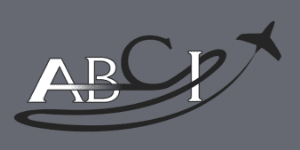
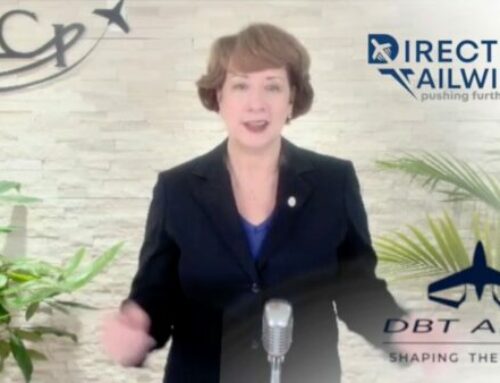
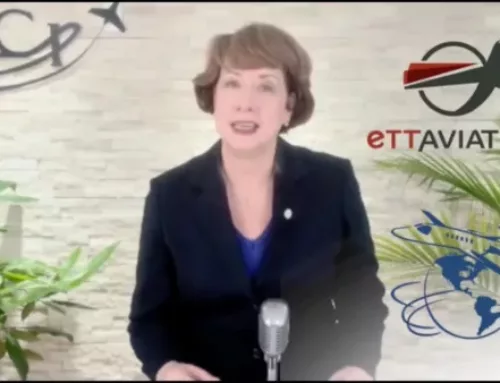
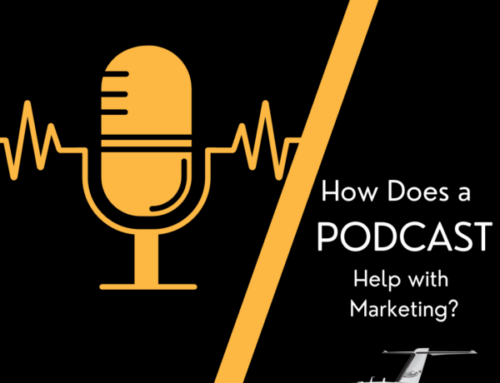


Leave A Comment